Frank Köster
Defining Operational Conditions for Safety-Critical AI-Based Systems from Data
Jan 29, 2026Abstract:Artificial Intelligence (AI) has been on the rise in many domains, including numerous safety-critical applications. However, for complex systems found in the real world, or when data already exist, defining the underlying environmental conditions is extremely challenging. This often results in an incomplete description of the environment in which the AI-based system must operate. Nevertheless, this description, called the Operational Design Domain (ODD), is required in many domains for the certification of AI-based systems. Traditionally, the ODD is created in the early stages of the development process, drawing on sophisticated expert knowledge and related standards. This paper presents a novel Safety-by-Design method to a posteriori define the ODD from previously collected data using a multi-dimensional kernel-based representation. This approach is validated through both Monte Carlo methods and a real-world aviation use case for a future safety-critical collision-avoidance system. Moreover, by defining under what conditions two ODDs are equal, the paper shows that the data-driven ODD can equal the original, underlying hidden ODD of the data. Utilizing the novel, Safe-by-Design kernel-based ODD enables future certification of data-driven, safety-critical AI-based systems.
Revisiting Evaluation of Deep Neural Networks for Pedestrian Detection
Nov 13, 2025



Abstract:Reliable pedestrian detection represents a crucial step towards automated driving systems. However, the current performance benchmarks exhibit weaknesses. The currently applied metrics for various subsets of a validation dataset prohibit a realistic performance evaluation of a DNN for pedestrian detection. As image segmentation supplies fine-grained information about a street scene, it can serve as a starting point to automatically distinguish between different types of errors during the evaluation of a pedestrian detector. In this work, eight different error categories for pedestrian detection are proposed and new metrics are proposed for performance comparison along these error categories. We use the new metrics to compare various backbones for a simplified version of the APD, and show a more fine-grained and robust way to compare models with each other especially in terms of safety-critical performance. We achieve SOTA on CityPersons-reasonable (without extra training data) by using a rather simple architecture.
SoK: Assessing the State of Applied Federated Machine Learning
Aug 03, 2023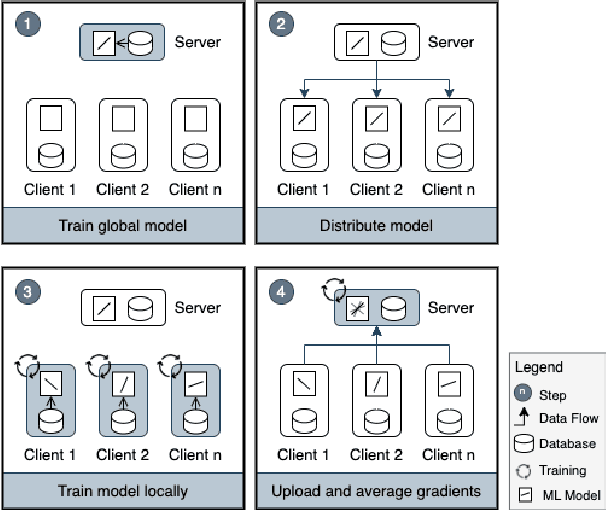
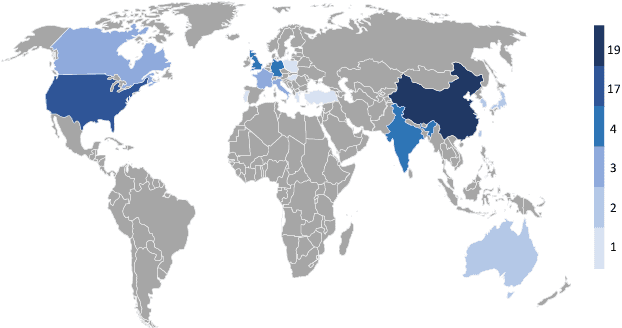
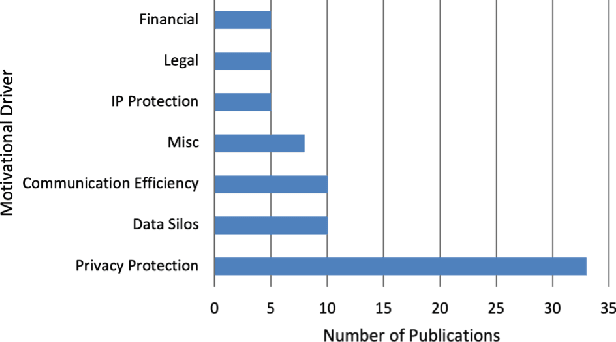
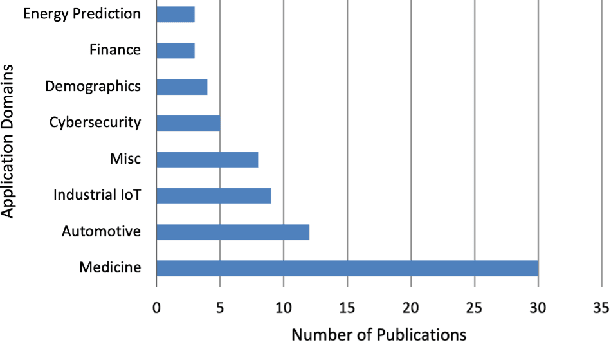
Abstract:Machine Learning (ML) has shown significant potential in various applications; however, its adoption in privacy-critical domains has been limited due to concerns about data privacy. A promising solution to this issue is Federated Machine Learning (FedML), a model-to-data approach that prioritizes data privacy. By enabling ML algorithms to be applied directly to distributed data sources without sharing raw data, FedML offers enhanced privacy protections, making it suitable for privacy-critical environments. Despite its theoretical benefits, FedML has not seen widespread practical implementation. This study aims to explore the current state of applied FedML and identify the challenges hindering its practical adoption. Through a comprehensive systematic literature review, we assess 74 relevant papers to analyze the real-world applicability of FedML. Our analysis focuses on the characteristics and emerging trends of FedML implementations, as well as the motivational drivers and application domains. We also discuss the encountered challenges in integrating FedML into real-life settings. By shedding light on the existing landscape and potential obstacles, this research contributes to the further development and implementation of FedML in privacy-critical scenarios.
Tensor networks for quantum machine learning
Mar 21, 2023



Abstract:Once developed for quantum theory, tensor networks have been established as a successful machine learning paradigm. Now, they have been ported back to the quantum realm in the emerging field of quantum machine learning to assess problems that classical computers are unable to solve efficiently. Their nature at the interface between physics and machine learning makes tensor networks easily deployable on quantum computers. In this review article, we shed light on one of the major architectures considered to be predestined for variational quantum machine learning. In particular, we discuss how layouts like MPS, PEPS, TTNs and MERA can be mapped to a quantum computer, how they can be used for machine learning and data encoding and which implementation techniques improve their performance.
Unsupervised Lane-Change Identification for On-Ramp Merge Analysis in Naturalistic Driving Data
Apr 12, 2021
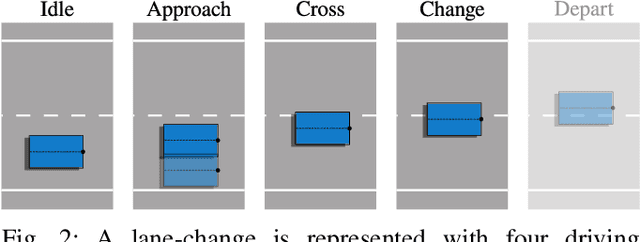
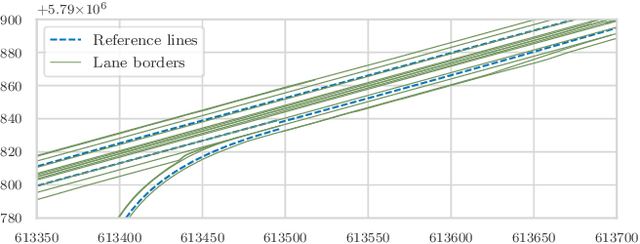
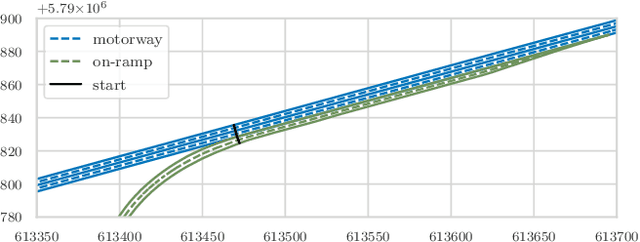
Abstract:Connected and Automated Vehicles (CAVs) are envisioned to transform the future industrial and private transportation sectors. Due to the complexity of the systems, functional verification and validation of safety aspects are essential before the technology merges into the public domain. In recent years, a scenario-driven approach has gained acceptance for CAVs emphasizing the requirement of a solid data basis of scenarios. The large-scale research facility Test Bed Lower Saxony (TFNDS) enables the provision of substantial information for a database of scenarios on motorways. For that purpose, however, the scenarios of interest must be identified and categorized in the collected trajectory data. This work addresses this problem and proposes a framework for on-ramp scenario identification that also enables for scenario categorization and assessment. The efficacy of the framework is shown with a dataset collected on the TFNDS.
 Add to Chrome
Add to Chrome Add to Firefox
Add to Firefox Add to Edge
Add to Edge